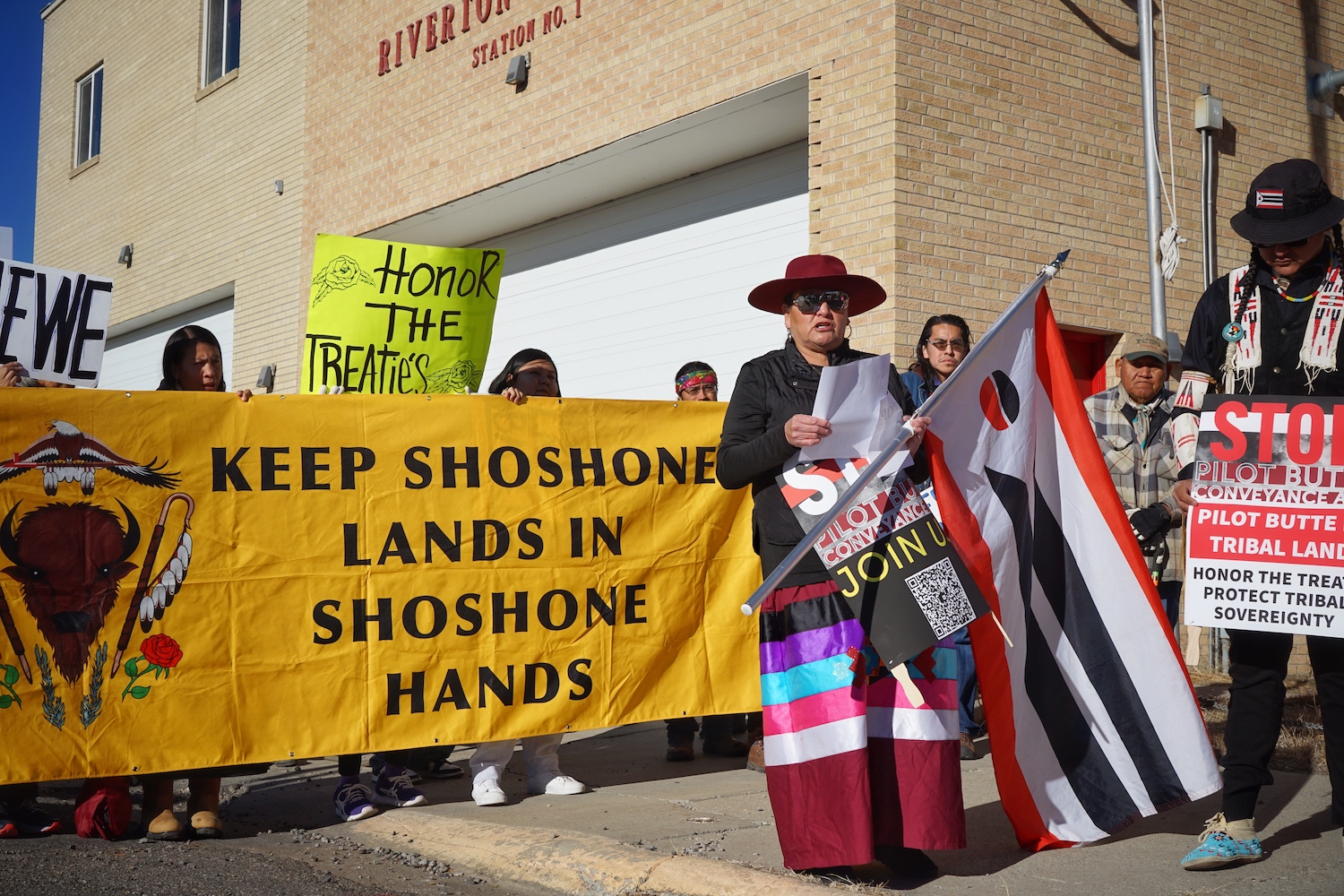
- Details
- By Elyse Wild
The Power Butte Conveyance Act was introduced last year as co-current bills by Barrasso, Senator Cynthia Lummis, and Representative Harriet Hageman. The bill would require the U.S. Bureau of Reclamation to transfer ownership of a rundown hydroelectric power plant located within the borders of the Wind River Reservation — home to the Eastern Shoshone and Northern Arapaho Tribes — to a nearby irrigation district. The plant sits on 2.5 acres of land and has been defunct since 2008. It was set to be demolished by the Bureau of Reclamation, but it never was.
The land in question was part of 1.5 million acres ceded by the tribes in 1905, and on 111,000-acre the tribes have been attempting to repatriate since 1939.
Neither tribe was consulted during the writing of the bill. In a YouTube video sent to Native News Online by Barrasso's office of an October 2024 debate during which the senator was asked about tribal opposition to the bill, he stated:
"Now we understood that the Bureau of Reclamation was going to talk to the local community, Eastern Shoshone, and I understand that they didn't get talked to. I think that was a mistake. I think they should have been informed earlier on."
He went on to say that his bill is a "win-win."
On Dec. 4, the Wind River Intertribal Council passed a resolution declaring its opposition to the bill. The resolution notes that the Treaty of Fort Bridger, signed in 1863, established the Wind River Reservation as 44 million acres; five years later, it was reduced to 3.2 million acres. Today, it is a 2.2 million acre swath of land in west-central Wyoming
Northern Arapaho citizen Nicole Wagon is part of a group of citizens from both tribes leading protests and organizing a petition that has accumulated more than 440 signatures in opposition to the bill. The group first protested outside of Barraso's office on Dec. 5.
"We need to get our voice out there because this isn't right," Wagon told Native News Online. "It happens all the time, and we need to stop it because this is all we have."
Eastern Shoshone tribal member Felicia Alvarez told Native News Online that while the bill affects tribes on the Wind River Reservation, the outcome will reverberate through Indian Country.
"From a much bigger perspective, because when it comes to treaties, it doesn't just affect our treaty, because what's happening to us is going to happen to another tribe," Alvarez said. "We might be the ones they are attacking right now, but they will go after other tribes and their treaty rights."
More Stories Like This
50 Years of Self-Determination: How a Landmark Act Empowered Tribal Sovereignty and Transformed Federal-Tribal RelationsPrairie Band Potawatomi Nation Fires Executives After ICE-Related Contract Sparks Outcry
Tlingit Haida Tribal Business Corporation Clarifies Federal Contracting Work
Homeland Tour Offers Deeper Understanding, Appreciation of Chickasaw Roots
Klamath Tribes Seek to Reverse Judge’s Removal in Water Rights Case
Help us defend tribal sovereignty.
At Native News Online, our mission is rooted in telling the stories that strengthen sovereignty and uplift Indigenous voices — not just at year’s end, but every single day.
Because of your generosity last year, we were able to keep our reporters on the ground in tribal communities, at national gatherings and in the halls of Congress — covering the issues that matter most to Indian Country: sovereignty, culture, education, health and economic opportunity.
That support sustained us through a tough year in 2025. Now, as we look to the year ahead, we need your help right now to ensure warrior journalism remains strong — reporting that defends tribal sovereignty, amplifies Native truth, and holds power accountable.
 The stakes couldn't be higher. Your support keeps Native voices heard, Native stories told and Native sovereignty defended.
The stakes couldn't be higher. Your support keeps Native voices heard, Native stories told and Native sovereignty defended.
Stand with Warrior Journalism today.
Levi Rickert (Potawatomi), Editor & Publisher


